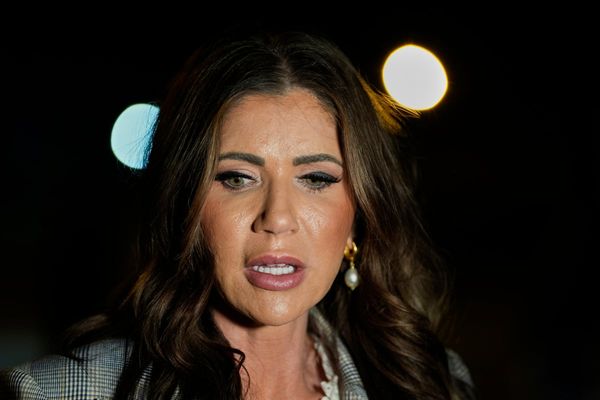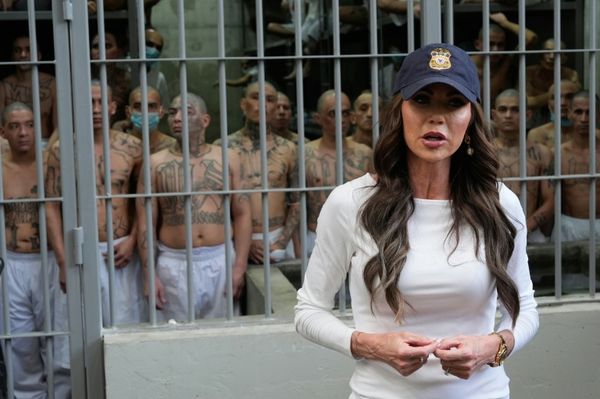
A Palestinian bid for full membership of the United Nations took another step forward on Friday, after a resolution — albeit watered down — passed through the General Assembly in support of Palestine being qualified to join.
A total of 143 nations — including Australia — voted in favour, while nine (including the US) were against and 25 abstained.
Australia’s vote has stirred up a strong reaction across advocacy groups and armchair pundits. Crikey clarifies what the vote actually means.
What does it mean?
The vote was about whether the Security Council should reconsider Palestine’s request to become the 194th member of the UN. The powerful UN organ is responsible for admitting new members. Last month the United States vetoed an attempt by Palestine to join the UN. There was broad support for Friday’s resolution, with 143 nations — including Australia — voting for, and only nine against: the US, Israel, Argentina, Czechia, Hungary, Micronesia, Nauru, Palau and Papua New Guinea.
The resolution also gave Palestine the right to speak on broader issues than it had before, to propose agenda items and to serve on committees. It will still not be able to vote at the General Assembly or at any of its conferences.
The Palestinian Authority, the government body that controls parts of the West Bank as a result of the 1990s Oslo Accords, and which claims jurisdiction over the Gaza Strip despite de facto Hamas control there, first applied to become a UN member in 2011. The UN’s powerful Security Council thwarted the attempt, although the following year the Palestinian Authority managed to achieve non-member observer state status through a vote in the General Assembly.
Friday’s vote saw 25 abstentions, including the UK, Canada, Germany and Sweden.
Why the apprehension?
While the result is seen as a sign of growing global support for the Palestinians, the outcome was met with fury by Israel’s UN ambassador Gilad Erdan. He said UN members were “about to grant privileges and rights to the future terror state of Hamas,” according to the Associated Press.
Hamas, which has controlled Gaza since 2007, is designated a terror group by countries including the US and Australia, and has carried out numerous attacks against Israeli soldiers and civilians. A Hamas-led attack against southern Israel in October last year killed approximately 1,200 people and sparked the ongoing Israeli assault on the Gaza Strip, which has killed more 34,000 people.
The US has said it will block Palestinian membership until key issues with Israel are resolved, including concerns over security, boundaries and the future of Jerusalem.
“Our vote does not reflect opposition to Palestinian statehood; we have been very clear that we support it and seek to advance it meaningfully. Instead, it is an acknowledgement that statehood will come only from a process that involves direct negotiations between the parties,” ambassador Robert Wood said.
Australian UN ambassador James Larsen said the resolution would reject the goals and methods of Hamas, adding: “Australia has long believed a two-state solution offers the only hope for breaking the endless cycle of violence and achieving lasting peace … like many member states, Australia has been frustrated by the lack of progress.”
What’s been the response so far?
Australia’s vote and the broad support elsewhere was hailed as a “clear and significant paradigm shift in the global consensus regarding the approach for implementing a two-state solution” by the General Delegation of the State of Palestine to Australia, Aotearoa New Zealand and the Pacific, the top Palestinian diplomatic body in Australia.
It was also celebrated by groups like the Australian Muslim Advocacy Network, which said the “shift” in the government’s position on Palestinian statehood and its decision not to vote with the US were “welcome changes, long overdue, but insufficient to match the gravity of Israel’s actions”.
Opposition foreign affairs spokesman Simon Birmingham said the vote sent a “shameful message” from Labor that “violence and terrorism get results ahead of negotiation and diplomacy”.
Israel’s Australian ambassador Amir Maimon tweeted that the vote was “counterproductive and would only reward Hamas for the atrocities they committed on October 7” and that direct negotiations should have preceded the granting of UN rights to Palestine.
Labor backbencher Josh Burns also criticised the move, saying it was “shameful”.
“An abstention would have signalled we’re open to further recognition, but that we acknowledge the short-term hurdles that need to be overcome in order to achieve lasting peace,” he added, according to SBS News.
What have Australia’s top ministers said?
Foreign Affairs Minister Penny Wong tweeted that the vote was for a “modest extension of participation rights” for the Palestinian mission.
“Australia has long advocated for a two-state solution to deliver lasting peace and security for Israelis and Palestinians … We continue to condemn Hamas’ terrorist attack of 7 October, and the call for the immediate release of all hostages,” she added.
Prime Minister Anthony Albanese told reporters he understood the distress experienced by Jewish Australians since the October attack against Israel, and said both they and Palestinians had the right to live safely and in peace.
“The international community will have to play a role as we go forward, and that is why having the international community have some representation here from Palestinians was worthy of our support … You can support human rights for Palestinians without it denigrating the human rights of Israeli citizens,” Albanese said.
Do you support Australia’s vote at the UN, or would you have preferred we abstained or voted no? Let us know your thoughts by writing to letters@crikey.com.au. Please include your full name to be considered for publication. We reserve the right to edit for length and clarity.







